Overview
Introduction: Dog Canine Respiratory Disease
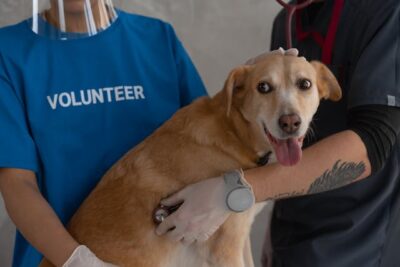
Respiratory illness in dogs, including dog canine respiratory disease, canine respiratory illness, and canine infectious respiratory disease (CIRD), can be a serious concern for dog owners and pet owners alike. Understanding the signs, causes, and treatment options for respiratory disease is crucial for maintaining your dog’s health and well-being.
Early detection and proper management of dog canine respiratory disease can significantly improve outcomes for sick dogs and help prevent the spread of illness to other dogs. It’s important for dog owners to work closely with veterinary medicine professionals to ensure the best possible care for their pets.
Brief overview of Dog Canine Respiratory Disease
Respiratory illnesses in dogs, including dog canine respiratory disease and canine infectious respiratory disease (CIRD), are a common concern among pet owners. CIRD is a complex, multifactorial disease caused by a combination of viruses and bacteria, often leading to symptoms such as coughing, sneezing, nasal discharge, and fever.
The American Veterinary Medical Association emphasizes the importance of vaccination, proper hygiene, and regular veterinary check-ups to prevent and manage respiratory diseases in dogs. Early detection and treatment are crucial for reducing the severity of symptoms and preventing the spread of these illnesses.
Importance of early detection and treatment
Early detection and treatment of dog canine respiratory disease are paramount to their health and well-being. Dog owners and pet owners must be vigilant in recognizing the signs and symptoms of respiratory illness, such as coughing, sneezing, and nasal discharge.
Prompt intervention by veterinary medicine professionals can prevent the progression of the disease and improve outcomes for sick dogs. Early treatment can also help prevent the spread of infectious respiratory disease complex to other dogs. Regular veterinary check-ups and a proactive approach to respiratory health are essential for ensuring the overall well-being of our canine companions.
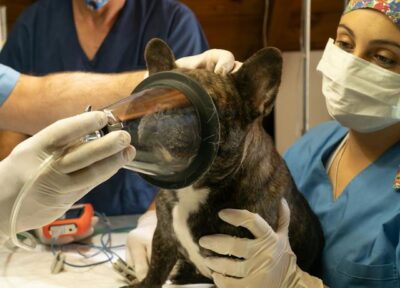
Anatomy of a Dog’s Respiratory System
The respiratory system in dogs is complex, consisting of the nose, throat, windpipe, and lungs. Each part plays a crucial role in breathing and oxygen exchange. Respiratory illnesses can affect these areas, leading to various symptoms and complications.
Exploring the structure and function of the respiratory system
The anatomy of a dog’s respiratory system is complex and plays a vital role in their overall health. The system includes the nose, throat, windpipe, and lungs, all working together to facilitate breathing and oxygen exchange.
Understanding the structure and function of these components is crucial for recognizing respiratory issues early and providing appropriate care for your dog. A healthy respiratory system ensures your dog can breathe properly and maintain their overall well-being.
How respiratory illness can affect different parts of the system
Respiratory illness in dogs can affect different parts of the respiratory system, compromising their ability to breathe properly. These illnesses can be caused by various factors, including viruses, bacteria, and environmental pollutants. In severe cases, dog canine respiratory disease can lead to complications that affect the dog’s immune system and may require intervention by veterinary medicine professionals.
Dog owners should be vigilant in monitoring their pet’s respiratory health and seek prompt treatment if any signs of respiratory disease are present to prevent the spread of illness to other dogs.

Common Causes of Respiratory Illness in Dogs
Viral Infections
Viral infections are common causes of respiratory illness in dogs, leading to conditions like canine respiratory disease, chronic pneumonia, and acute pneumonia. Canine adenovirus type 2, canine parainfluenza virus, and canine influenza are among the causative agents of these infections.
These viruses can spread easily among dogs, especially in environments where dogs are in close contact, such as kennels or shelters. Understanding the symptoms and risks associated with viral respiratory infections is crucial for preventing and managing these illnesses in dogs.
Bacterial Infections
Bacterial infections, such as kennel cough, are common causes of respiratory illness in dogs. Kennel cough, also known as canine infectious respiratory disease complex (CIRDC), is caused by a bacterial respiratory pathogen. This illness can lead to severe respiratory disease if left untreated.
Respiratory droplets are a common mode of transmission for bacterial respiratory infections in dogs. Understanding the risks and symptoms associated with bacterial respiratory infections is crucial for preventing the spread of respiratory pathogens and managing respiratory disease complex in dogs.
Fungal Infections
Fungal infections are less common but can also cause respiratory illness in dogs. Canine respiratory disease caused by fungi can be serious and lead to respiratory infections. Understanding the symptoms and risks associated with fungal respiratory infections is crucial for preventing and managing these illnesses in dogs.
Prompt veterinary care is essential for diagnosing and treating fungal respiratory infections to ensure the best possible outcome for affected dogs.
Allergic Reactions
Allergic reactions can also cause respiratory illness in dogs, leading to symptoms such as coughing, sneezing, and difficulty breathing. Dogs can be allergic to various environmental factors, including pollen, dust, and mold. Identifying and avoiding the allergens that trigger respiratory symptoms is crucial for managing allergic reactions in dogs and maintaining their respiratory health.
Environmental Factors
Environmental factors such as poor air quality, smoke, and pollutants can contribute to respiratory illness in dogs. Exposure to these factors can irritate the respiratory tract and lead to symptoms such as coughing, sneezing, and difficulty breathing.
Minimizing exposure to environmental pollutants and ensuring good air quality in your home can help prevent respiratory issues in dogs.
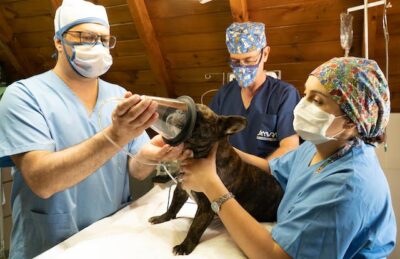
Symptoms of Respiratory Illness in Dogs
Coughing
Coughing is a common symptom of respiratory illness in dogs, especially in cases of kennel cough, which is a highly contagious respiratory infection. Dogs with kennel cough often have a dry, hacking cough that may sound like they are trying to clear their throat.
It’s important to monitor your dog’s cough and seek veterinary care if it persists or is accompanied by other symptoms, such as nasal discharge or fever. Early diagnosis and treatment can help prevent the spread of respiratory infections and improve outcomes for affected dogs.
Sneezing
Sneezing can be a symptom of respiratory illness in dogs, especially when they are exposed to other dogs in environments like boarding kennels. While occasional sneezing is normal, prolonged or frequent sneezing could indicate an underlying respiratory issue.
If your dog is sneezing excessively, it’s important to monitor their symptoms and seek veterinary care if the sneezing persists or is accompanied by other signs of illness. Early detection and treatment can help prevent the spread of respiratory infections to other dogs and ensure your pet’s well-being.
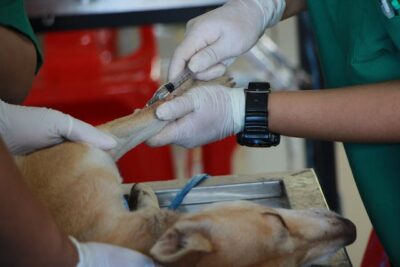
Nasal Discharge
Discharge from the nose can be clear, mucous-like, or bloody, depending on the underlying cause. Nasal discharge is a common symptom of respiratory illness in dogs and can be caused by various factors, including viruses and bacteria.
Dogs with respiratory infections may have clear, mucous-like, or bloody discharge from their nose. In more severe cases, infected dogs may also exhibit other symptoms such as coughing, sneezing, and difficulty breathing. It’s important to monitor your dog’s nasal discharge and seek veterinary care if it persists or is accompanied by other concerning symptoms.
Labored Breathing
Nasal labored breathing, or trouble breathing through the nose, can indicate a more severe respiratory illness in dogs. Dogs with severe respiratory disease may exhibit prolonged or severe symptoms, including difficulty breathing and elevated temperature.
If your dog shows signs of nasal labored breathing or other concerning symptoms, such as trouble breathing, seek veterinary care promptly for proper diagnosis and treatment.

Diagnosis and Testing
Physical examinations by veterinarians
Physical examinations by veterinarians are essential for diagnosing respiratory illnesses in dogs. Most dogs with respiratory issues will exhibit clinical signs that can be detected during a physical exam. In cases of more severe symptoms or suspected severe disease, further testing such as imaging studies or blood tests may be recommended to confirm the diagnosis.
Veterinary diagnostics laboratories can also play a crucial role in identifying the causative agents of canine respiratory illnesses, especially in environments where dogs have nose-to-nose contact, such as doggy day care facilities.
Diagnostic tests such as X-rays and blood tests
Diagnostic tests such as X-rays and blood tests are commonly used by veterinarians to diagnose respiratory illnesses in dogs. X-rays can help identify abnormalities in the lungs and airways, while blood tests can detect the presence of infectious agents or other underlying causes.
Veterinary diagnostic laboratories play a crucial role in analyzing these tests to determine the causative agent of the respiratory illness. This information is vital for determining the appropriate treatment and preventing the spread of illness through direct contact or genetic material.

Other Diagnostics Tools
Other diagnostic tools, such as PCR (polymerase chain reaction) tests, can also be used to identify the causative agent of respiratory illnesses in dogs. These tests are often performed in veterinary diagnostic laboratories and can detect the presence of specific viruses or bacteria in respiratory samples.
Identifying exactly what agent is causing the illness is crucial for determining the most effective treatment and preventing the spread of illness through direct contact or genetic material.
Importance of early and accurate diagnosis
Early and accurate diagnosis of respiratory illnesses in dogs is crucial for several reasons. It allows for prompt initiation of treatment, which can help alleviate symptoms and prevent the progression of the disease.
Additionally, early diagnosis can help prevent the spread of infectious respiratory diseases to other dogs. Accurate diagnosis ensures that the appropriate treatment is administered, increasing the chances of a successful outcome for the affected dog.

Treatment Options
Medications
Medications are often used to treat respiratory illnesses in dogs, especially those caused by viral or bacterial infections. Antibiotics are commonly prescribed for bacterial infections, while antiviral medications may be used for viral infections.
Treatment durations can vary but are typically around six to eight weeks, depending on the severity of the illness and the response to treatment. Diagnostic testing helps identify the causative agent of the respiratory illness, allowing veterinarians to prescribe the most effective medication. For effective treatment of kennel cough, consider using Pup Shield Products’ Kennel Cough Destroyer.
In addition to medications, immune support can play a crucial role in maintaining your dog’s health. Pup Shield Immune Support is your canine companion’s shield against illness and a proactive step towards maintaining their overall well-being. Made by experienced pet care experts, this glycerin-based formulation is designed to promote the natural processes of your dog’s immune system without compromising the healthy bacteria in their intestines. Each 30-day supply is specially tailored for pups under 15 lbs, and our product is proudly made in the USA.
Therapies
Therapies such as oxygen therapy and nebulization can be beneficial in treating respiratory illnesses in dogs. Oxygen therapy helps improve oxygen levels in the blood, which is important for dogs experiencing breathing difficulties.
Nebulization involves delivering medication directly to the lungs, which can be effective in treating respiratory infections and reducing inflammation. These therapies can be used alongside medications to improve outcomes for dogs with respiratory illnesses.
Surgery
Surgery is rarely used as a treatment option for respiratory illnesses in dogs but may be necessary in certain cases. For example, surgery may be required to remove an obstruction in the airway or to repair a damaged or collapsed trachea. Surgical interventions are typically reserved for severe cases that do not respond to other treatment options.

Home Care and Management
Tips for caring for a dog with respiratory illness at home
Caring for a dog with respiratory illness at home involves providing a comfortable and stress-free environment. Ensure your dog has access to clean, fresh water and a well-balanced diet to support their immune system.
Monitor your dog’s symptoms closely and seek veterinary advice if their condition worsens or if you have any concerns.
Monitoring symptoms
Monitoring your dog’s symptoms is essential when caring for them at home with a respiratory illness. Keep track of their breathing rate, coughing, and any changes in appetite or energy levels. If you notice any worsening of symptoms or new symptoms developing, contact your veterinarian for advice.
Providing a comfortable environment
Providing a comfortable environment for a dog with respiratory illness involves keeping their living area clean and well-ventilated. Avoid exposing them to environmental irritants such as smoke or strong odors. Ensure they have a warm and cozy place to rest, and monitor their comfort levels regularly.
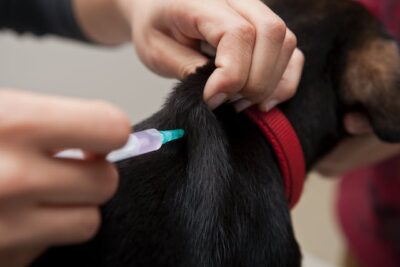
Preventing Dog Canine Respiratory Disease
Vaccinations
Routine vaccinations play a crucial role in preventing respiratory illnesses in dogs. Vaccines can protect against common respiratory pathogens, reducing the risk of infection and the spread of dog canine respiratory disease and other illnesses.
It’s important to follow your veterinarian’s vaccination schedule to ensure your dog is adequately protected against respiratory diseases.
Environmental Control
Environmental control is essential for preventing respiratory illness in dogs, including dog canine respiratory disease. This includes ensuring good air quality in your home by avoiding smoking indoors and using air purifiers if necessary. Proper ventilation and cleanliness can also help reduce the risk of respiratory infections in dogs.
Regular Vet Check-ups
Regular veterinary check-ups are crucial for preventing respiratory illness in dogs, including canine respiratory disease. These check-ups allow veterinarians to monitor your dog’s respiratory health and catch any potential issues early. Vaccinations, parasite control, and overall health assessments during these visits can help maintain your dog’s respiratory health.
For added peace of mind, consider Pup Shield’s warranty program. Pup Shield offers financial protection, comprehensive coverage, and an easy claims process. With coverage options like Prime and Elite, you can choose a plan that fits your budget and needs. Focus on your pet’s well-being, knowing you have reliable accident coverage with Pup Shield.

Special Considerations for Puppies and Senior Dogs
Unique challenges and vulnerabilities in young and old dogs
Puppies and senior dogs have unique challenges and vulnerabilities when it comes to respiratory health. Puppies’ immune systems are still developing, making them more susceptible to dog canine respiratory disease and other respiratory infections.
Senior dogs, on the other hand, may have weakened immune systems and underlying health conditions that can exacerbate respiratory issues. Regular veterinary check-ups and tailored care are essential for maintaining the respiratory health of puppies and senior dogs.
How to provide tailored care for puppies and senior dogs with respiratory issues
Tailored care for puppies and senior dogs with respiratory issues involves providing a comfortable and stress-free environment. For puppies, this includes ensuring they receive their vaccinations on schedule and limiting exposure to other dogs with dog canine respiratory disease and other respiratory illnesses.
Senior dogs may benefit from gentle exercise and a diet that supports respiratory health, along with regular veterinary check-ups to monitor their condition.
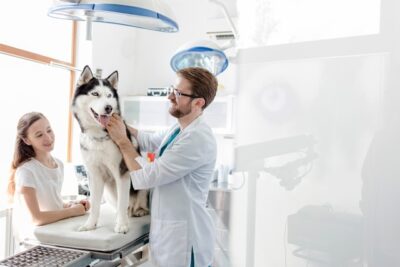
Conclusion: Dog Canine Respiratory Disease
Recap of key points
- Respiratory illnesses in dogs, including canine respiratory disease, canine respiratory illness, and canine infectious respiratory disease (CIRD), can be serious and require understanding signs, causes, and treatment options.
- Early detection and proper management are crucial for improving outcomes and preventing the spread of illness to other dogs.
- Common causes of respiratory illness include viral, bacterial, fungal infections, allergic reactions, and environmental factors.
- Symptoms of respiratory illness include coughing, sneezing, nasal discharge, and labored breathing.
- Diagnosis and testing involve physical examinations, X-rays, blood tests, and other diagnostic tools to identify the causative agent and guide treatment.
- Treatment options include medications, therapies, and in rare cases, surgery.
- Home care involves providing a comfortable environment and monitoring symptoms closely.
- Preventative measures include vaccinations, environmental control, and regular veterinary check-ups.
- Special considerations for puppies and senior dogs involve tailored care to address their unique vulnerabilities.
Importance of proactive care for your dog’s respiratory health
Proactive care for your dog’s respiratory health is essential for maintaining their overall well-being. By understanding the signs and causes of dog canine respiratory disease, you can take steps to prevent infection and manage symptoms early.
Regular veterinary check-ups, vaccinations, and environmental control can help reduce the risk of dog canine respiratory disease. Additionally, providing a comfortable environment and monitoring your dog’s symptoms closely can help you detect any issues early and seek prompt treatment. Taking proactive measures can improve outcomes for your dog and ensure they lead a healthy and happy life.
If you’re looking for puppies for sale in Florida and surrounding areas, consider adopting from us. Our puppies are thoughtfully bred from reputable breeders, ensuring they are healthy, friendly, and cared for as family. Browse our selection today and find your new furry friend! For more information and tips for dog lovers and dog owners, visit our blog.
Frequently Asked Questions (FAQs): Dog Canine Respiratory Disease
- Q: Can my dog get a respiratory illness from visiting a dog park?
- A: Yes, respiratory illnesses can spread easily in areas where dogs interact closely, such as dog parks. It’s important to monitor your dog’s health and avoid contact with unfamiliar dogs if there is a risk of illness.
- Q: What are the common signs of respiratory illness in dogs?
- A: Common signs include coughing, sneezing, nasal discharge, decreased appetite, and labored breathing. If you notice these symptoms, it’s important to seek veterinary care promptly.
- Q: How can I protect my dog from respiratory illness in boarding facilities?
- A: Make sure the facility has proper ventilation and cleanliness standards. Ensure your dog is up to date on vaccinations and avoid boarding your dog if there is an outbreak of respiratory illness.
- Q: What should I do if my dog shows signs of a mysterious illness after visiting a dog park?
- A: Seek veterinary care immediately. The College of Veterinary Medicine may be able to provide guidance on the new illness.
- Q: How long does respiratory illness in dogs typically last?
- A: The duration can vary depending on the illness and the dog’s health. Some cases may resolve in a few days, while others may persist for a prolonged duration.
- Q: What are the usual suspects when it comes to respiratory illnesses in dogs?
- A: Common culprits include viruses like canine influenza and bacteria like Bordetella bronchiseptica, which causes kennel cough. Vaccinations can help prevent these illnesses.
- Q: Are there any public health concerns associated with dog respiratory illness?
- A: While most respiratory illnesses in dogs are not a threat to human health, some strains of influenza can potentially be transmitted to humans. It’s important to practice good hygiene when caring for sick dogs.
- Q: What can I do to prevent my dog from getting a respiratory illness?
- A: Keep your dog’s vaccinations up to date, avoid exposing them to sick dogs, and practice good hygiene. Limiting contact with unfamiliar dogs in high-risk areas like dog parks or boarding facilities can also help reduce the risk.




